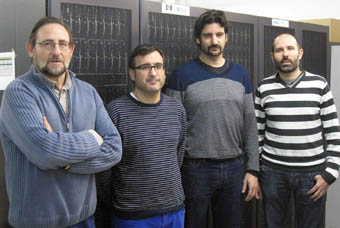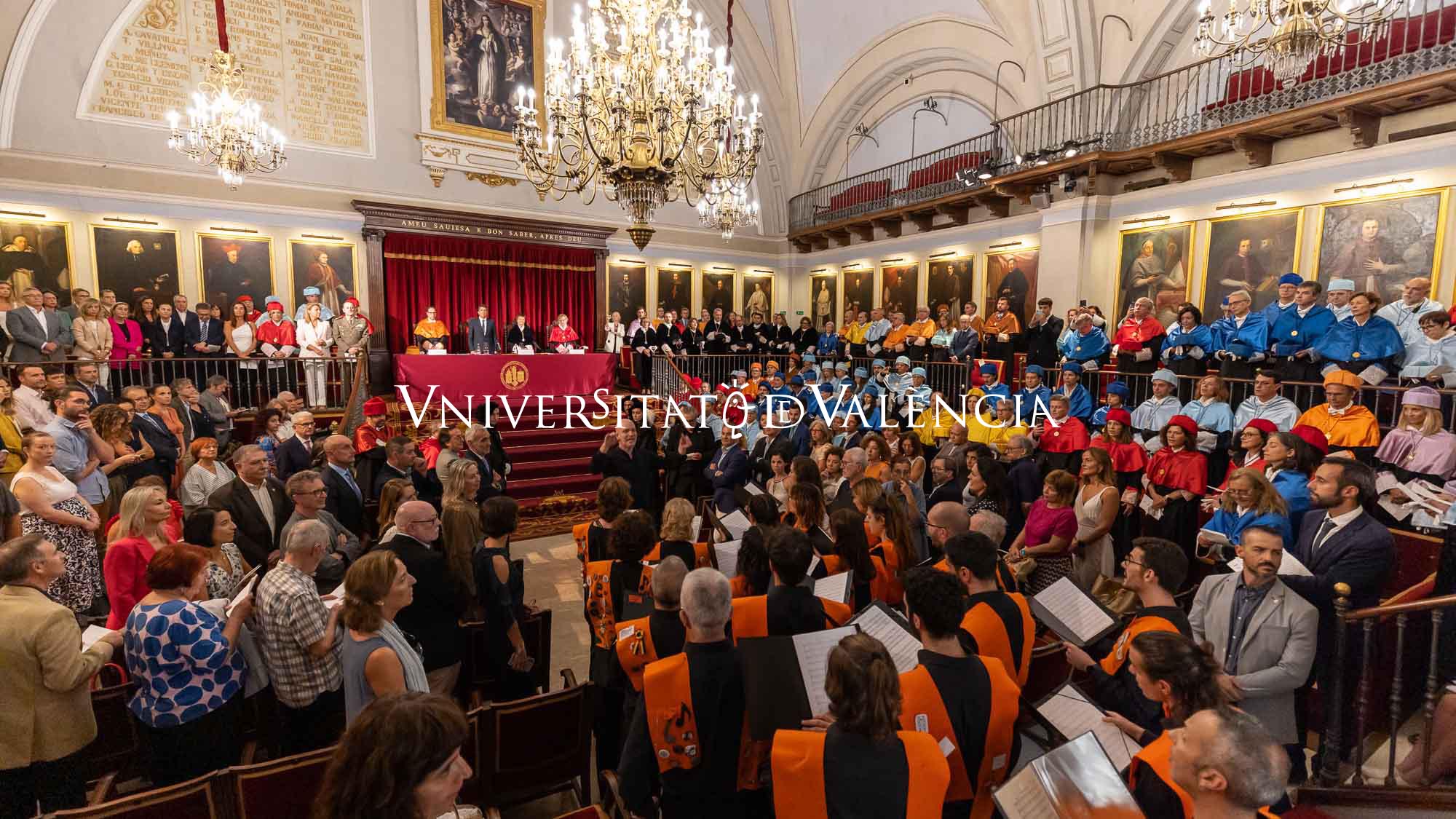
IFIC researchers work in the development of a new catalogation and access system to the experiment ATLAS data, one of the biggest detectors of Large Hadron Collider (LHC) of the CERN (European Organization for Nuclear Research), where Higgs boson was found. The system, that will implement in 2015 when the LHC functioning restarts, uses open source technologies to improve both the classification system of collisions between subatomic particles such as rear access to data.
The system lies in a serie of informatic programs that allow a more quickly and efficiently search between among the billions of particles collisions recorded in the LHC experiments. When the beams loaded with protons collide at four points where the ATLAS, CMS, ALICE and LHCb detectors are located, these huge machines perform million pictures per second of what happens inside, something that physicists call ‘happening' or 'events'. Among them, rarely a Higgs boson, the last missing piece to discover the Standard Model of Particle Physics occurs. Scientifics had to search through all registered events to confirm its existence.
The two major LHC ATLAS and CMS experiments, accumulate over 2,000 million collisions since the launch of the LHC in 2010, amount expected to increase by a factor of five in the next cycle of operation of the accelerator at CERN, which begins in 2015 after two years of technical stop. The idea of looking for a needle in a haystack became too small in this case. “Furthermore we find that the previous system of classification and access to events had drawbacks that made very few investigators would use it”, ensures Santiago González de la Hoz, professor at the IFIC of the Universitat de València and one of the participants in the project.
The previous system used a proprietary software, which requires the payment of using licenses and, moreover, was not prepared for the deluge of data expected with LHC running at almost twice the previous energy. “The new system is faster because it allows different levels of access to information for each event, from data “raw” to more specific search oriented physical phenomena”, describes José Salt Cairols, research professor at CSIC in the IFIC and group leader of GRID and e-Science center. The difference between searching a book from concrete data (author, publisher) or having to read all the books stored first.
Thus arose in 2013 a project (Event Index Project) to create a system that would improve this situation. It uses NoSQL technologies like Hadoop-based data, open source. "This system allows us to adjust the classification of events to the needs of scientists," argues González de la Hoz, saving for sorting the truly relevant data from each collision without using other information that would delay the search.
This system changes the same way to classificate collision while they are being produced. With the previous system, the classification is performed offline, once they had recorded and stored the collision, while the new method in which the Valencian scientists work permits classification when collisions between particles are produced. “This increases the complexity of the work, since it is necessary to develop a program to check real-time classification is being carried out correctly,” says the professor of the Universitat de València.
A prototype system has already been tested with a small selection of collisions of the ATLAS experiment (about one million). In January it will be tested on all data collected by the experiment during the first cycle of operation of the LHC (2010-2012), more than 2,000 million of real events. If everything works correctly, the system will be implemented in ATLAS before starting the first particle collisions at the LHC, scheduled for spring 2015.
In the Instituto de Física Corpuscular, they have developed both the program to verify the classification of events in real time as the system to extract the information required by the user in the database CERN filing the location of all recorded collisions. In the LHC, as in other scientific experiments working with large data, there is a system for storing and processing data distributed worldwide, called GRID. The IFIC is one of 100 centers worldwide that stores and processes data from the LHC, if the ATLAS experiment.
According Casaní Alvaro Fernandez, one of the IFIC computer engineers involved in the project, the research center of the PCB has used similar technology to other research projects working in GRID environments. In this sense, their participation in the Event Index Project along with other research centers such as CERN, INFN (Genoa), Orsay (France), Rutherford Appleton Laboratory (UK), Argonne National Laboratory (USA) and universities of Valparaiso (Chile) and Autónoma de Madrid (UAM) is a recognition of a career of more than a decade in distributed computing GRID within the ATLAS experiment at CERN.
Last update: 17 de december de 2014 12:36.
News release


















